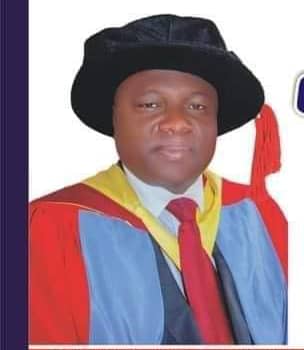***delivers inaugural lecture on July 25
A Professor of Comparative Literature at the University of Jos, Jeff Doki has given an insight on how poetry could be used to bring peace in turbulent times in Nigeria and the world at large.
According to him, unlike the sciences, poetry deals primarily with feelings, intuition and the imagination.
Doki, who is also the Head, Department of English in UNIJOS, expressed this optimism in a statement to announce the 107th inaugural lecture to be delivered by him on July 25 titled, ‘Poetry and Global Peace”, under the chairmanship of the institution’s Vice Chancellor, Prof. Tanko Ishaya.
The UNIJOS don said in spite of differences of soil and climate, of language and manners, of laws and customs and creed, the poet binds together by passion and knowledge the vast empire of human society.
He said, “My inaugural lecture is entitled, ‘Poetry and Global Peace’ because I am fully convinced that poetry can bring about durable peace in society. Poetry can do this in four broad ways: one, because of the broad range of human life that it can cover, two, because it can serve as a vital transmitter of human experience, three, because it can incite the emotional interest of man and, lastly, because it can develop sympathetic openness.
“Let me quickly add, for the purpose of clarity, that I am using the term poetry to mean the diversity of human experience treated in the various forms of poetry like the drama, the ode, the sonnet, the epic, the novel, the philosophical verse and Orature. In other words, I am using the term poetry in my inaugural lecture to mean all of imaginative literature.
“My submission in this inaugural lecture is that poetry (or literature in the broadest sense of the term) is uniquely capable of furthering the enlightened activity of the mind, first because of the range and diversity of its subject matter, second, because it communicates in a formative and effective way through offering what is itself a living experience, rather than through abstract analysis and interpretation.
“My thesis is that, it is by simultaneously tapping the intellectual, imaginative and emotional resources of man, and bringing them to bear on its objects in a unified and harmonious way, that poetry secures its most formative and salutary effect. In drawing attention to the power of poetry as a potent tool for resolving local, national and international conflicts, I have elected to use certain texts from both English and African literature as well as Orature.
“Two theories namely: the function of poetry and human security provide the theoretical basis for my lecture. My conclusion is that poetry has the capacity to harmoniously unite certain aspects of the human character like mercy, compassion, forgiveness and reconciliation—–all of which are basic components of peace.
“Similarly, other traditional approaches like dance festivals, art, songs, joking relationship and folklore are potent instruments to be revisited if we are desirous to have a peaceful society in our modern era.”
Born at Ikpayongo, Gwer Local Government Area of Benue state, Prof. Jeff Godwin Doki hails from Ushongo Local Government Area of Benue State.
He attended a boarding school, first at Lessel, and later at Sokoto for his secondary education. Prof. Jeff Doki continued his education by obtaining
Doki obtained a BA degree in English (Second Class Upper) in 1994 at the prestigious UNIJOS.
After the mandatory National Youth Service Corps scheme (NYSC), Jeff Doki enrolled for an MA in English (majoring in African and English poetry) graduating in 1998, and thereafter a Ph.D (in Comparative Literature), graduating in 2007, and becoming the first in his entire family to acquire a University and a Ph.D degree.
Since 2003 Jeff Godwin Doki has been a columnist with Baobab, an international African people and economy magazine based in Ghana.
Besides, Jeff Doki’s most influential essay Chibok Girls: Terrorism’s New Face was published by The New York Times, an American international newspaper of record, in June 2016.
Since 2001, Doki has produced more than 30 vignettes for the Academic Staff Union of Universities (ASUU).
Broadly speaking, the vignettes are a call on the Nigerian government to behave more responsibly by honoring agreements and keeping promises and to burnish Nigerian Universities up to international standards.
Perhaps, as a reward for his principled and consistent support for ASUU, the UNIJOS branch honoured him with a standing ovation during one of the congress meetings chaired by Dr. Lazarus Maigoro in December, 2021.
Since 2000, Jeff Doki has taught in the Division of General Studies and the Department of English at the University of Jos.
Doki has produced 32 peer-reviewed articles, 4 books, 2 monographs, and delivered over 35 presentations at conferences and seminars.
Besides, Prof Jeff Doki has supervised 7 Ph.D candidates and over 32 M.A students.
In 2018, Jeff Doki (in collaboration with Prof. David Jowitt) started a Non-Governmental Organization called Shakespeare in Nigeria.
As a Professor of Comparative Literature, the desire of Jeff Doki is to make William Shakespeare, the greatest English dramatist, accessible to African students.
This initiative is borne out of the conviction that students would derive immeasurable pleasure from studying William Shakespeare and comparing him with other African authors.
Through this NGO, Jeff Doki has traveled to many parts of Nigeria and Africa providing perceptible insights that would enhance a proper understanding of William Shakespeare.







